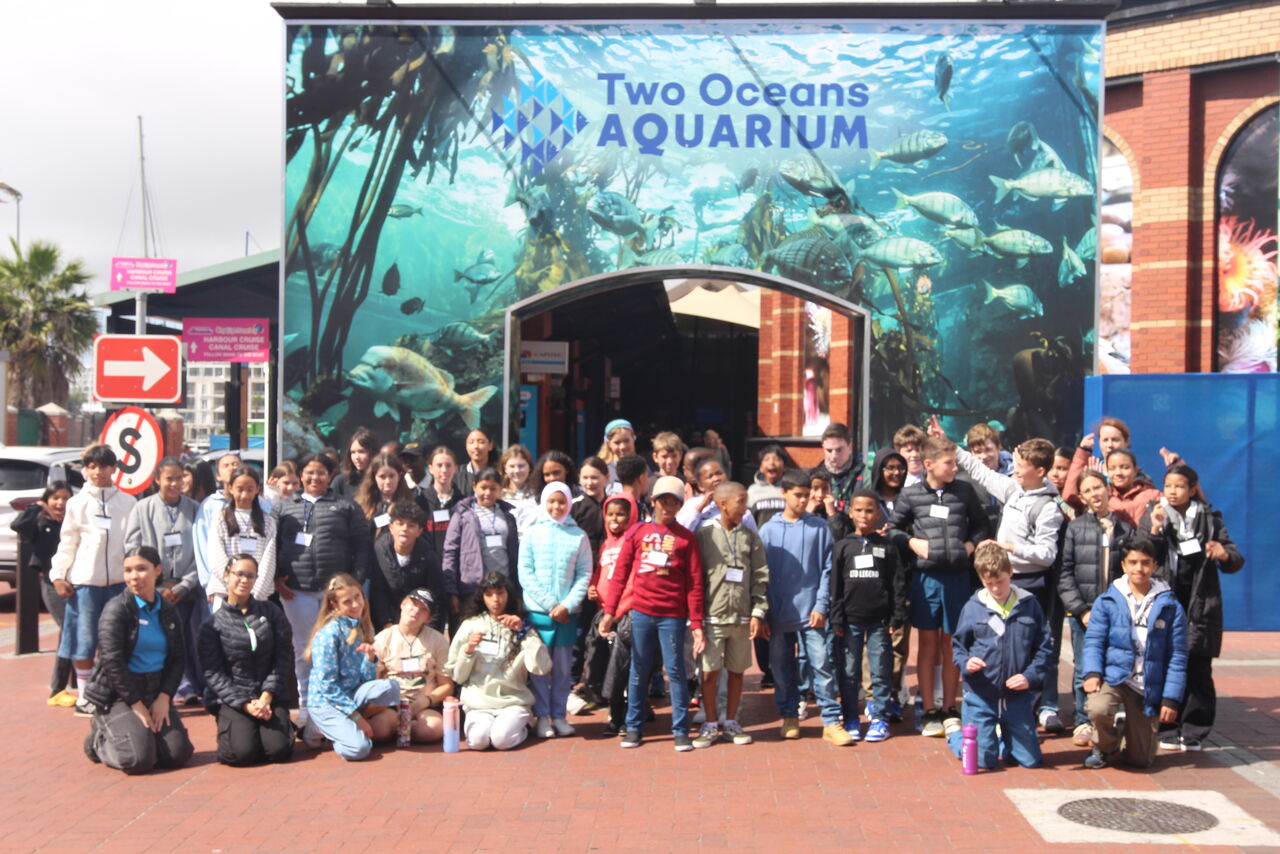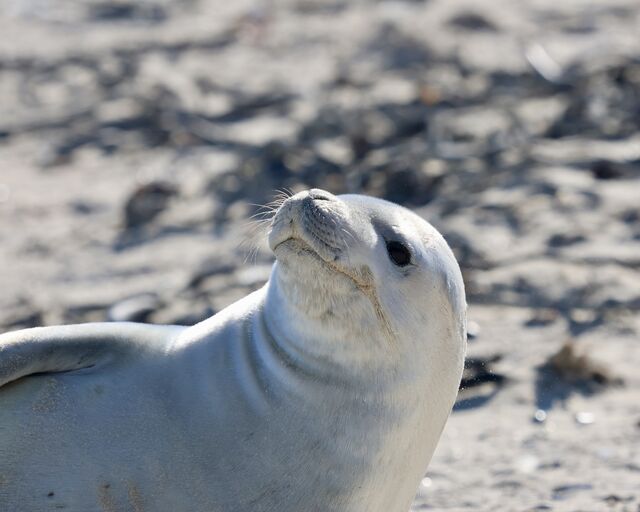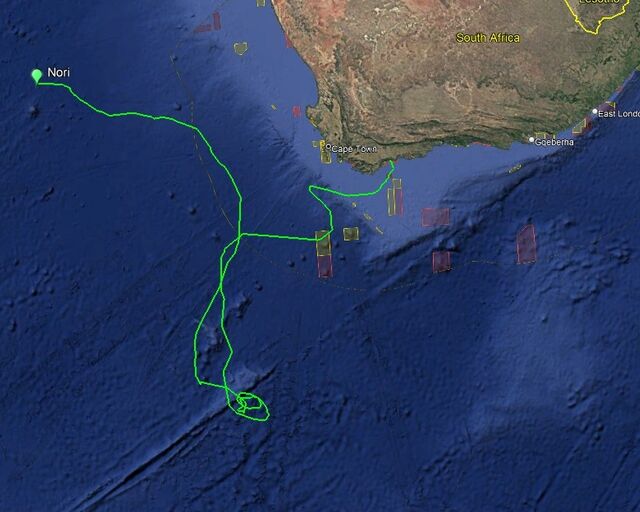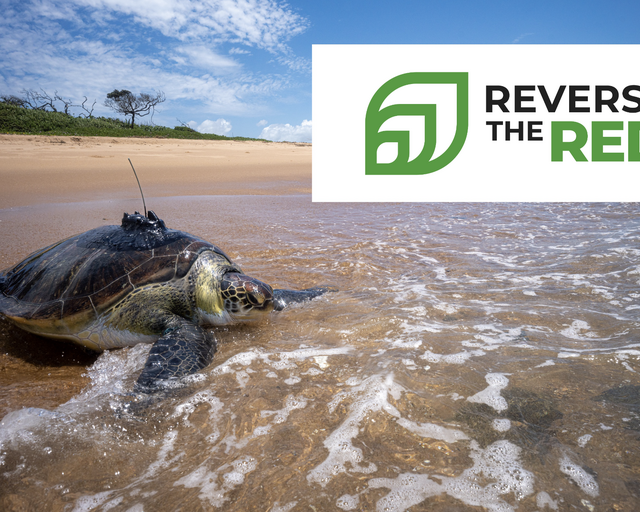Objectives
This course aimed to introduce learners from previously disadvantaged areas to the wonders of marine ecosystems through hands-on and practical learning experiences. By combining interactive lessons, fieldwork, and real-world exploration, our Ocean Campus sought to spark curiosity, build environmental awareness, and inspire the next generation of marine ambassadors.
Our reach
This September, we proudly hosted 50 learners from diverse backgrounds, representing all education districts under the Western Cape Government. The course ran every Saturday from 6 – 27 September, offering an exciting month filled with discovery, teamwork, and exploration of South Africa’s incredible aquatic biodiversity. A huge thank you to AVI for sponsoring this course.
Programme highlights
Day 1: South African aquatic ecosystems
The learning journey kicked off with a look at South Africa’s aquatic landscapes from rocky shores and sandy beaches to kelp forests, wetlands, estuaries, and mangroves. Learners collaborated in groups to research and present on these ecosystems, strengthening teamwork, communication, and confidence. The highlight of the day was an up-close exploration of the rocky shore, where learners observed live marine animals and discovered their unique adaptations for survival. Hands-on learning connects theory with discovery, transforming curiosity into understanding.
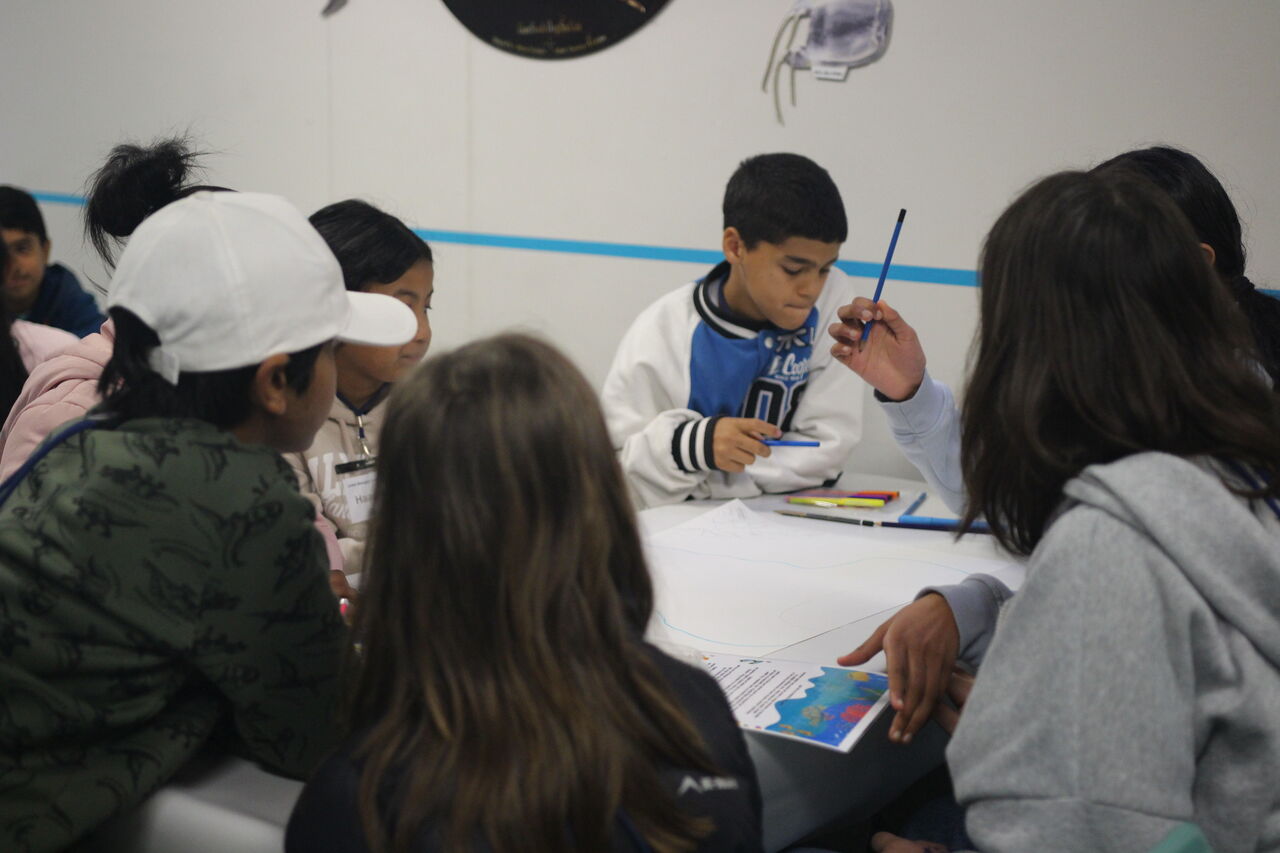
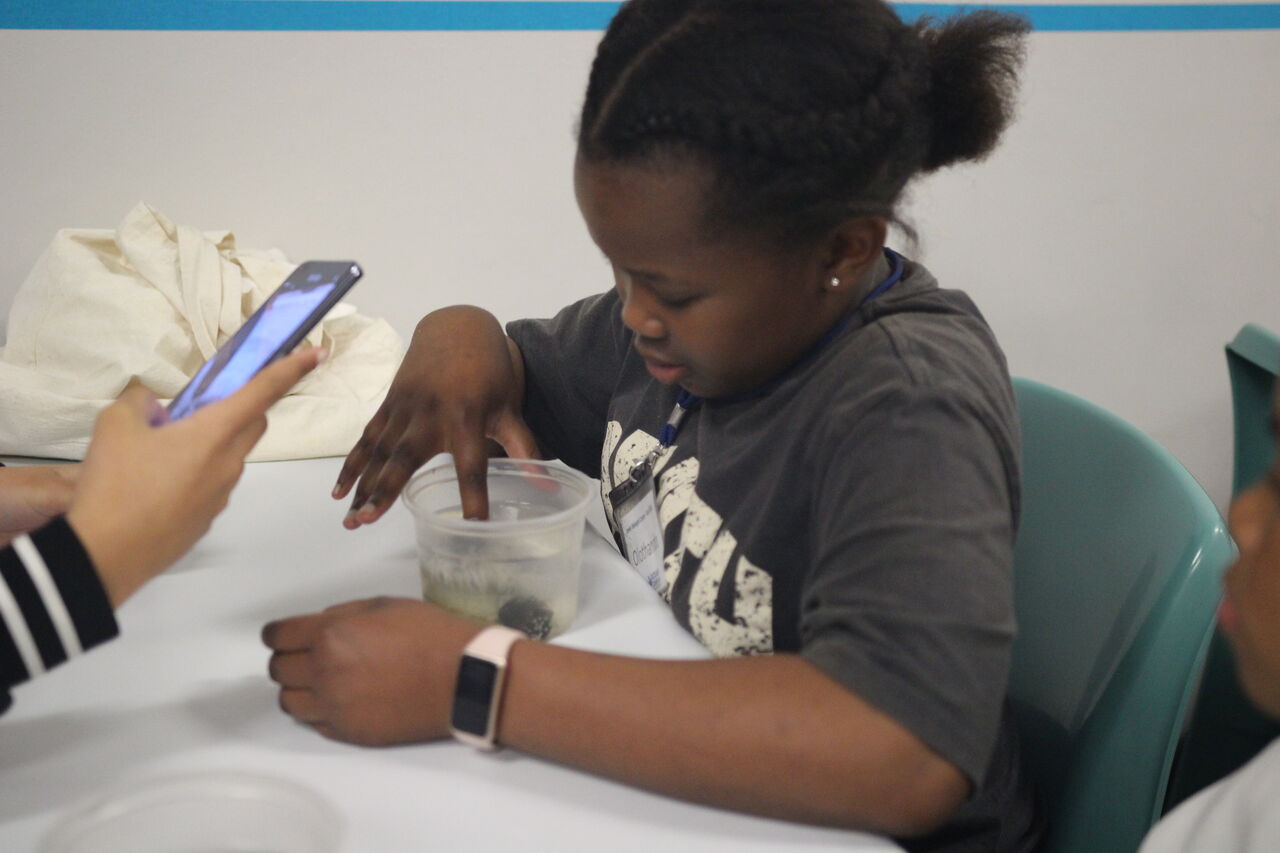
Day 2: Conservation
Day 2 focused on marine conservation, giving learners an eye-opening look at the connection between humans and the ocean. An interactive activity at the Two Oceans Aquarium encouraged exploration and observation, while a visit to the Penguin Exhibit brought conservation stories to life. One of our Penguin Keepers delivered an inspiring talk on penguins’ adaptations and the threats they face due to habitat loss and climate change.
Learners then examined turtles and seals, learning about their conservation challenges before visiting the Seal Platform, where they observed these animals in their natural environment, which was an unforgettable experience! Conservation starts with awareness. When learners see the impact of human actions firsthand, they are more motivated to protect our oceans.
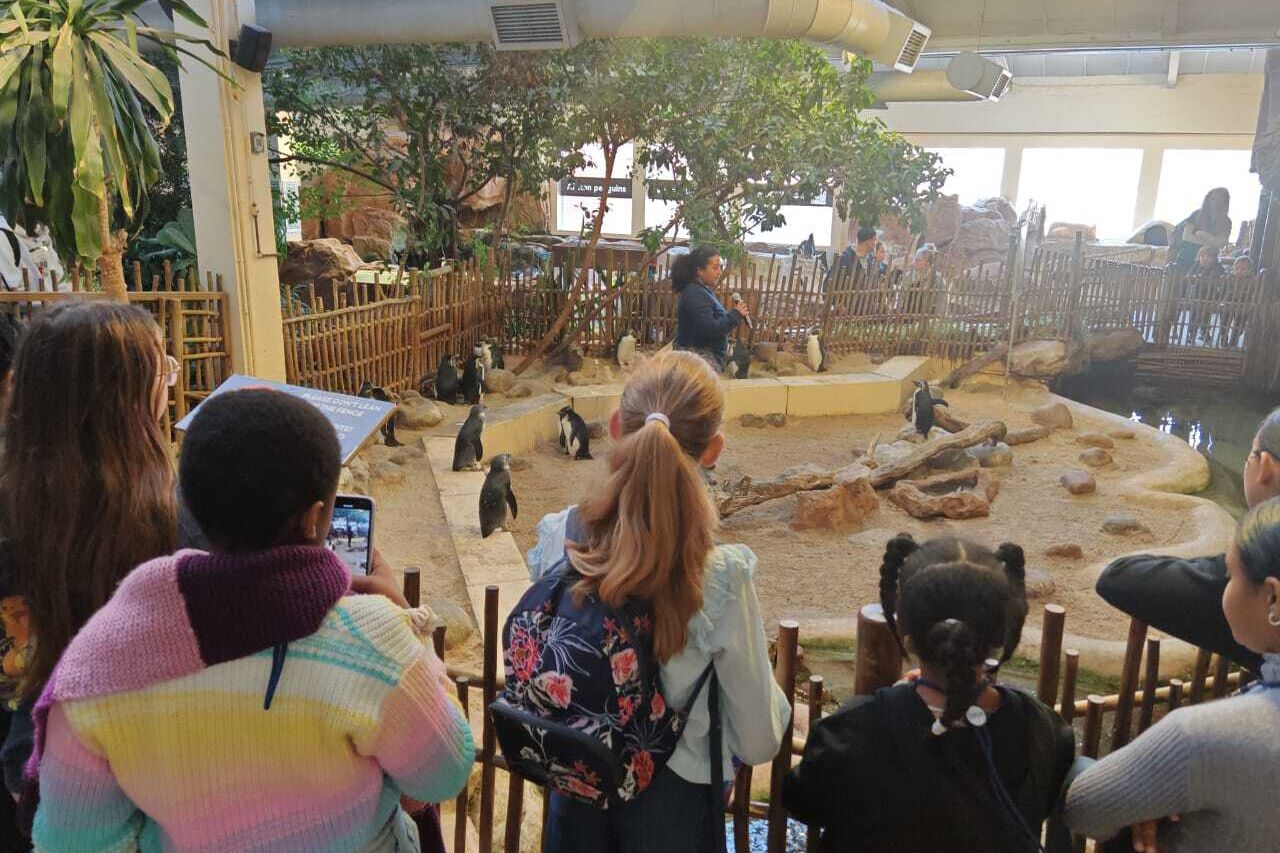
Day 3: Fish vs sharks and molluscs
The third day began with a boat trip along the Cape Town coastline, which was a thrilling experience that allowed learners to engage with the ocean’s surface and spot marine life in the wild. Back on shore, the Fish vs Shark lesson helped learners explore the similarities and differences between these fascinating species through hands-on observation.
The learners learnt about the South African Sustainable Seafood Initiative (SASSI), which prompted critical discussion about sustainable fishing and how everyday choices impact marine biodiversity. To close the day, learners delved into the world of molluscs, focusing on cephalopods like squids. Guided by our educators, they examined squid anatomy, which was an exciting, tactile learning moment. Day 3 blended adventure with science, building both knowledge and environmental consciousness.
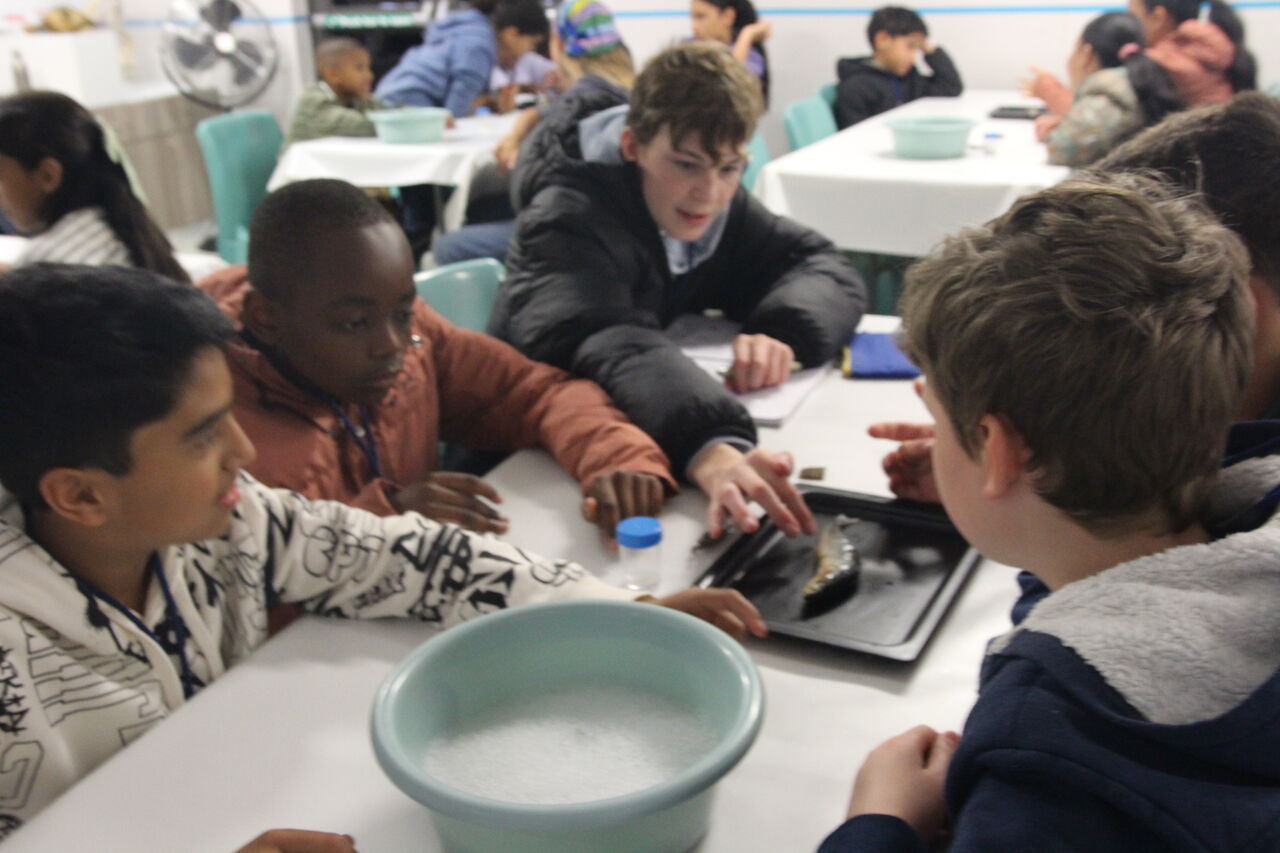
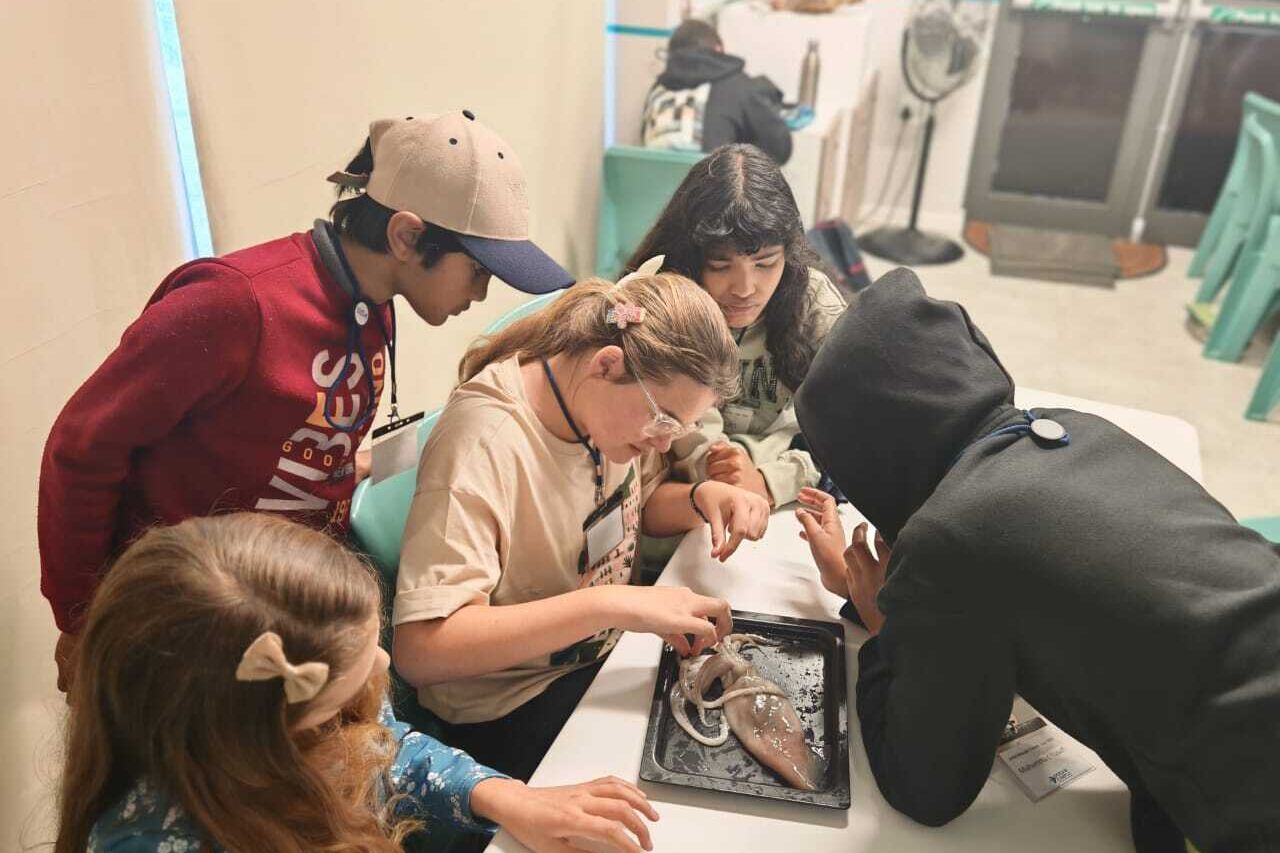
Day 4: Excursion and field exploration
The final day took learning into the field! The first stop was the Green Point biodiversity garden, where learners discovered the value of freshwater ecosystems in supporting biodiversity and human communities.
Later, learners headed back to the rocky shore, where they identified marine organisms, recorded their findings, and shared them with peers. This fieldwork encouraged scientific observation, collaboration, and respect for nature. The excursion provided the perfect conclusion - linking classroom lessons to real-world exploration and inspiring lifelong environmental responsibility.
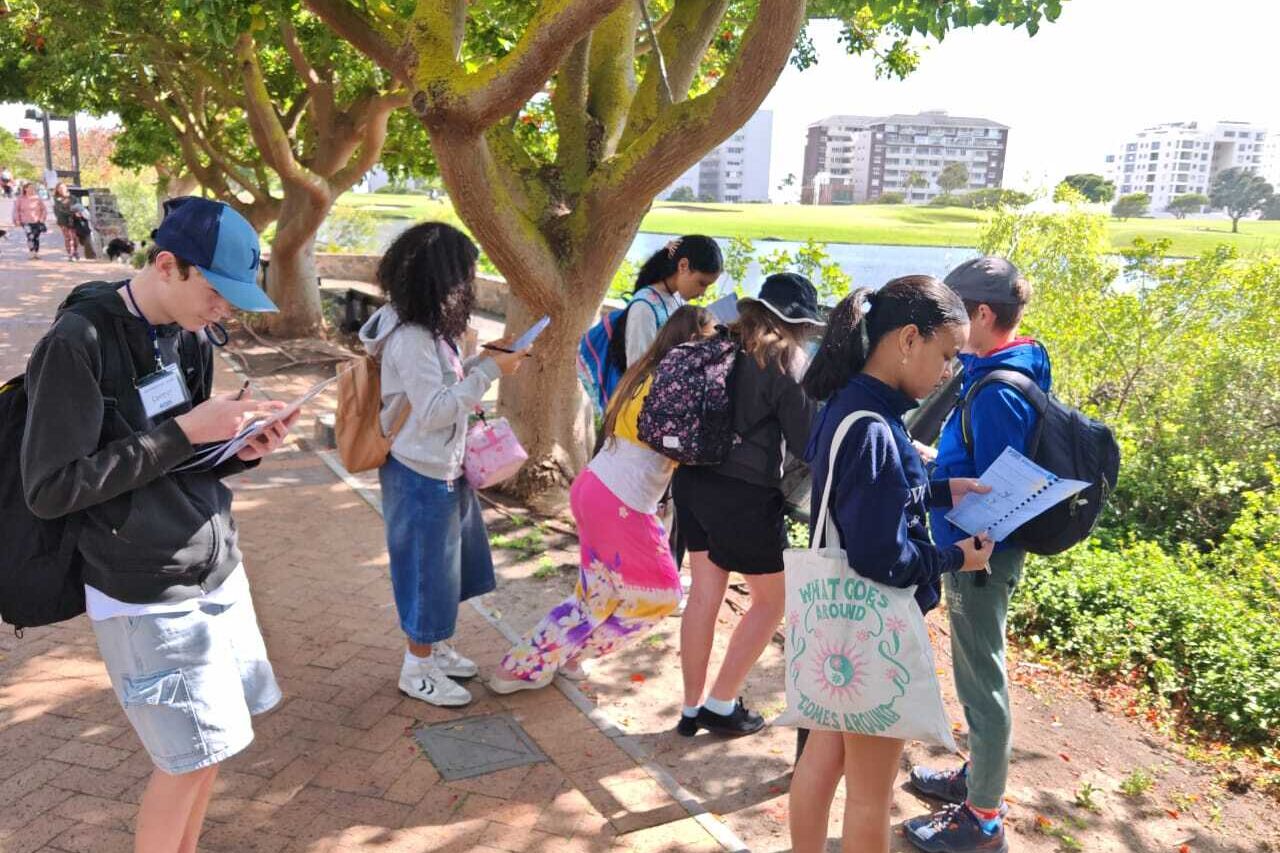
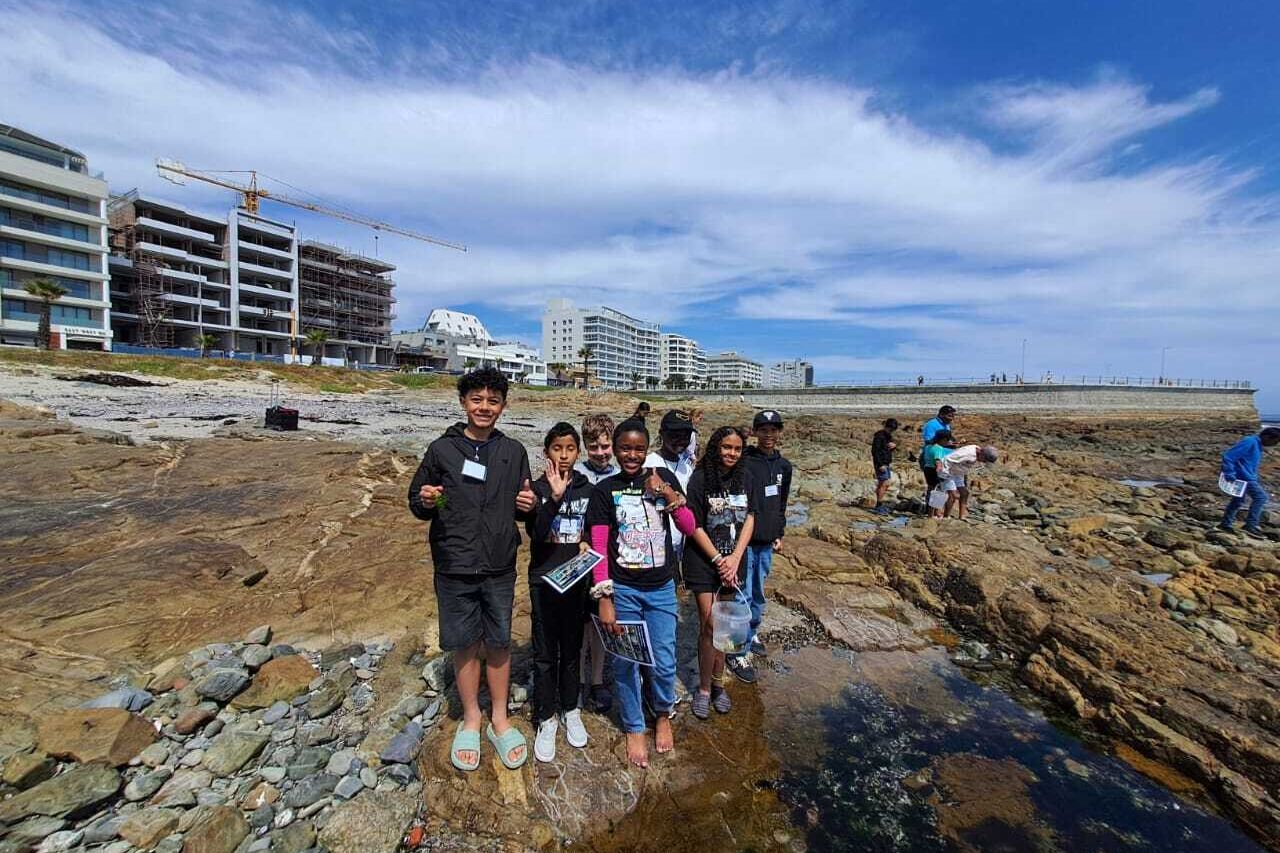
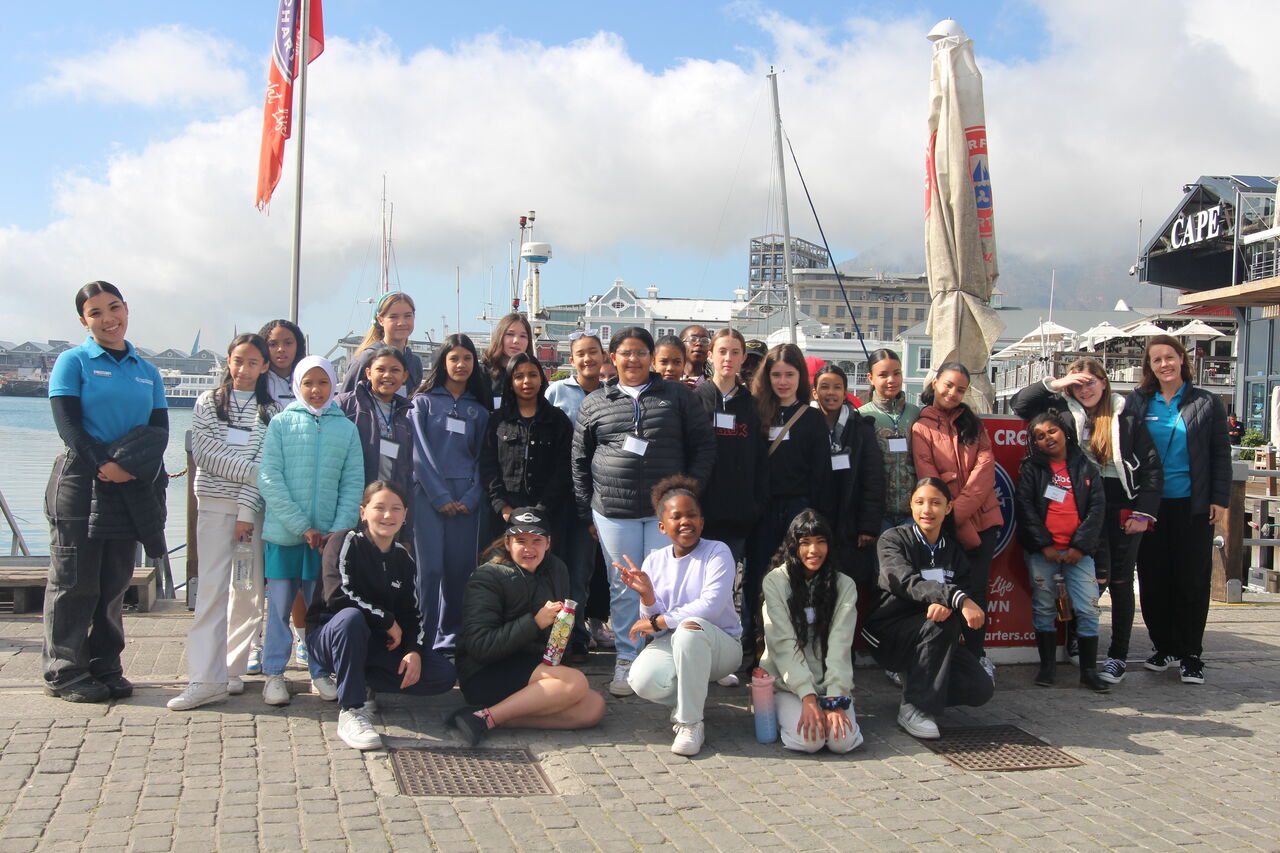
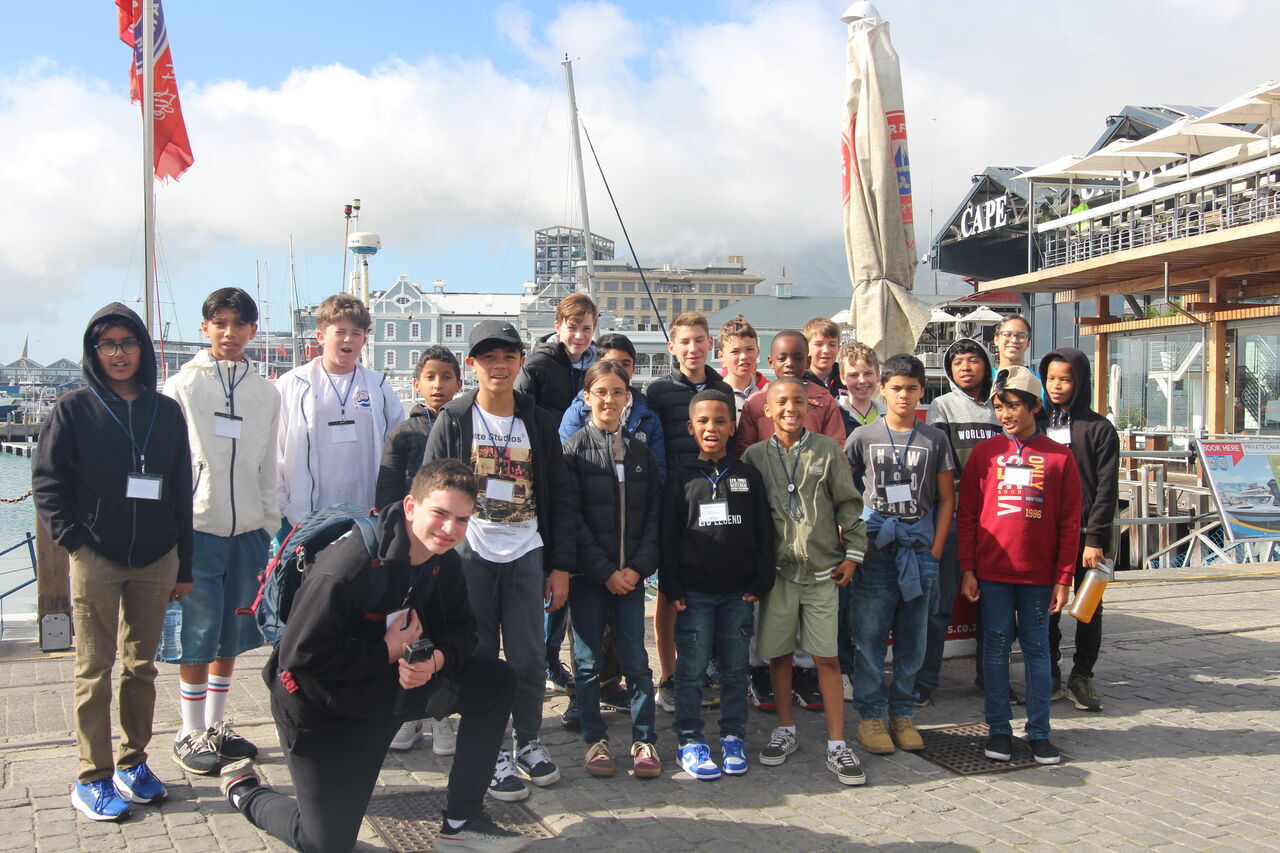
Learning with a difference
Learners left with a deeper understanding of marine biodiversity, hands-on scientific skills, greater appreciation for conservation and a renewed belief in their power to make a difference. By creating opportunities like this, Ocean Campus continues to open doors for young people from all backgrounds, nurturing the next generation of scientists, conservationists, and ocean advocates.
Learners started with a 58% average, improving to 76% by the end. There was a positive overall improvement, and it was clear that learners not only gained knowledge but also developed confidence, critical thinking, and a sense of environmental stewardship.
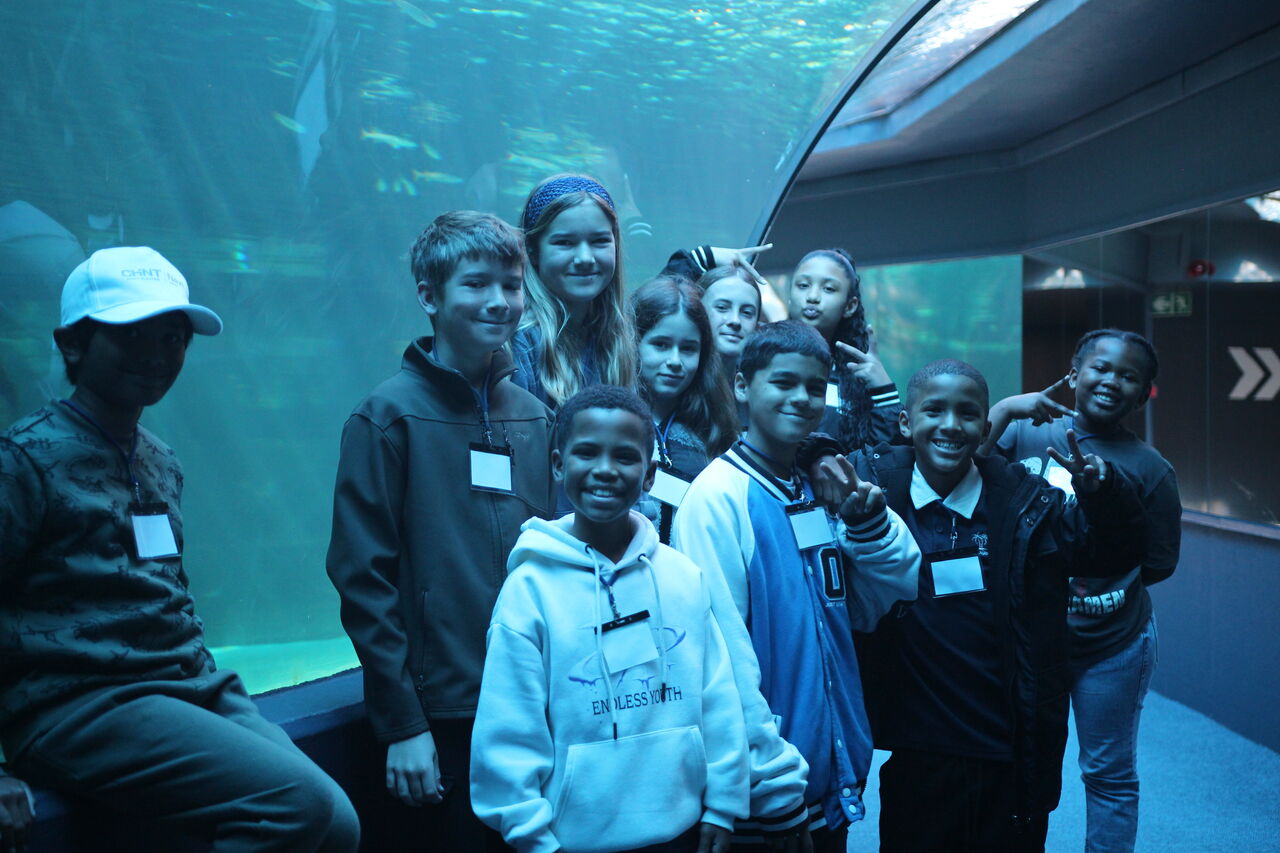
Feedback from Students
Ethan
"It was amazing, perfect, and I never want to go home."
Luah
"I loved this course; it taught me so much more, and I loved learning new things. The Aquarium does a lot for animals in need."
Ayola
"I found it very nice, fun, and I hope more children can come, and maybe one day I could be a volunteer."
Kegaan
"It was very interesting, and keep it up when I am in Grade 10, I will volunteer."
Eden
"It was fun, but a little hard. I made new friends, and the people working here are amazing."
Gabriella
"The teachers were great, the course was amazing, and I would love to do it again."
Hanaa
"I found this course intriguing and helpful for teaching me how to help marine life. Thank you for helping me get new friends."
Zosia
"This course is extremely interesting, fun and unlike anything I've ever been to. The marine life, ecosystems and aquatic plants and outings were amazing. I learnt so much and now I can use it to help save our oceans."
Azra
"I love this course and the things I experienced."
Related News
Sign up to our Newsletter
Receive monthly news, online courses and conservation programmes.
